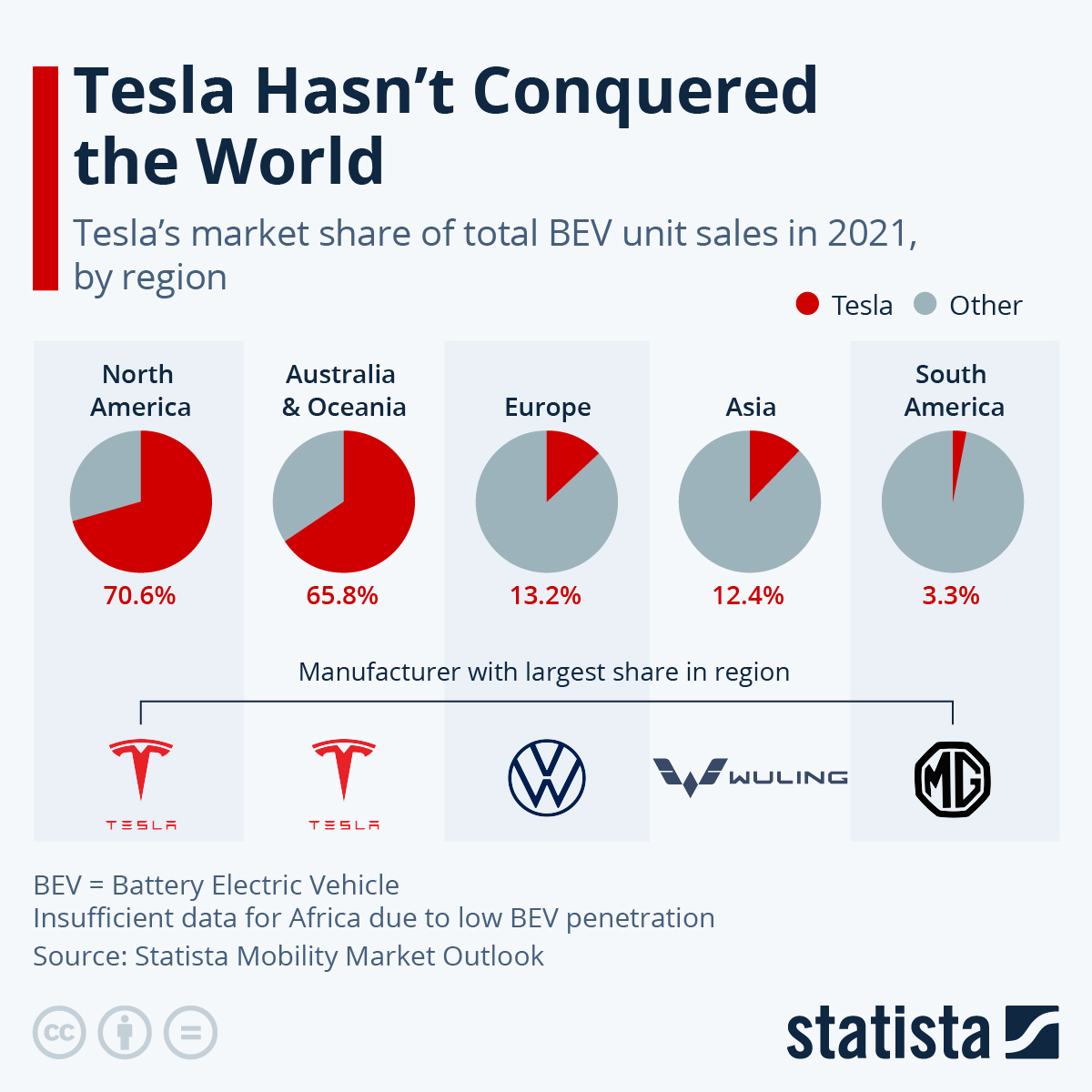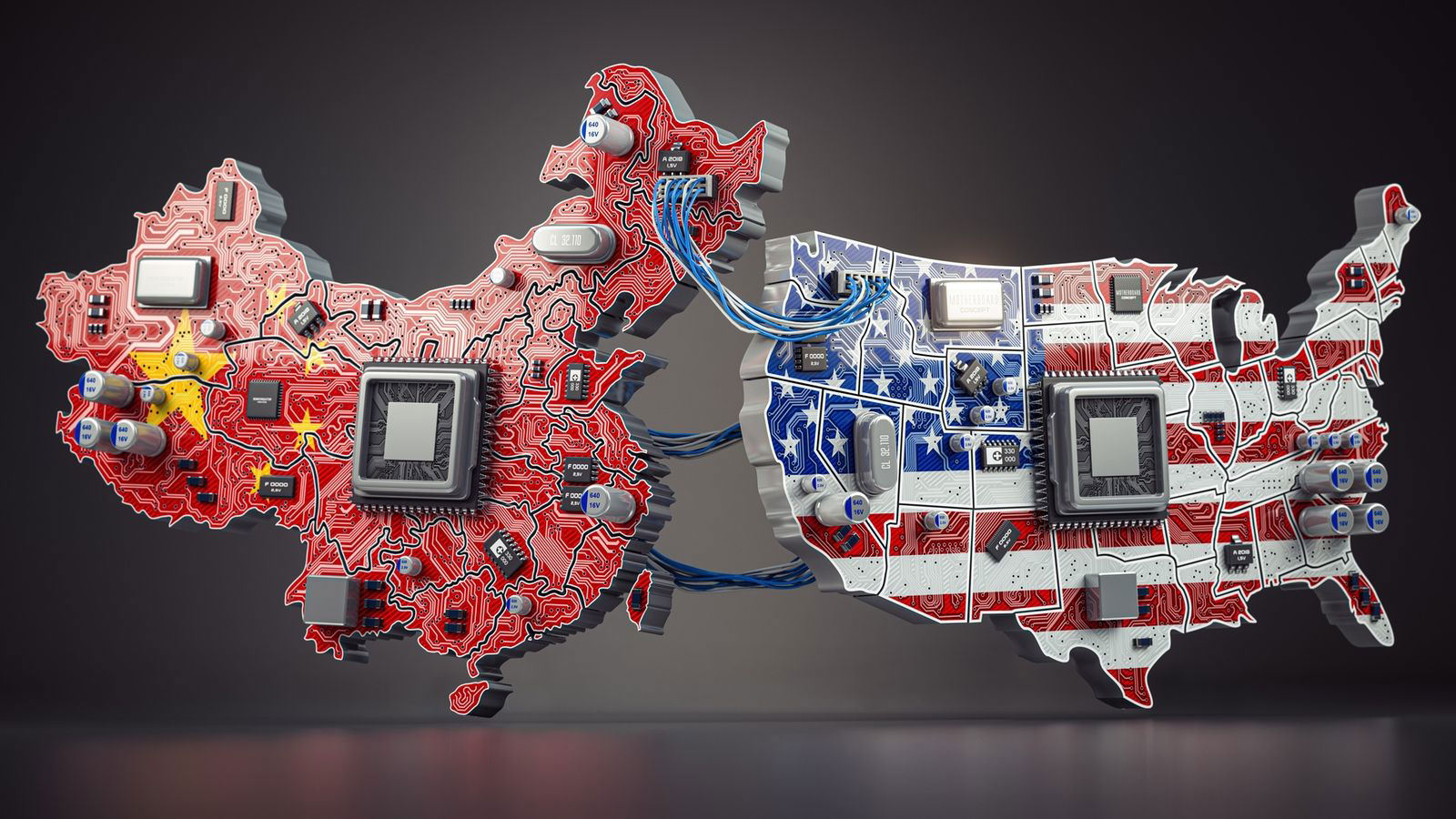The China Market: Navigating Challenges For Automakers Like BMW And Porsche

Table of Contents
Intense Competition and Shifting Consumer Preferences
The China auto market is fiercely competitive, with established international players facing increasing pressure from rapidly growing domestic brands. Understanding this competitive landscape and adapting to evolving consumer preferences are critical for success.
Domestic Brands' Rise
The emergence of powerful domestic brands like BYD, NIO, and Xpeng is significantly impacting market share. These companies are leveraging advanced technologies, competitive pricing strategies, and a deep understanding of Chinese consumer preferences to gain ground.
- Increased adoption of electric vehicles (EVs) by domestic brands puts pressure on established players. The rapid innovation and affordability of domestic EVs are forcing international automakers to accelerate their own EV strategies.
- Focus on smart features and connected car technology is crucial to compete. Chinese consumers highly value digital integration and advanced driver-assistance systems (ADAS). Luxury brands must offer comparable or superior technology to remain competitive.
- Understanding the unique preferences of Chinese consumers (e.g., digital connectivity, design aesthetics) is paramount. Tailoring vehicle design, features, and marketing campaigns to resonate with local tastes is essential. This includes considering factors like color preferences, interior design styles, and digital integration features.
Evolving Consumer Demands
Chinese consumers are increasingly discerning, demanding higher levels of quality, technology, and personalized experiences from their vehicles. Meeting these expectations is no longer a luxury, but a necessity for survival in this competitive market.
- The preference for SUVs and electric vehicles continues to grow. This shift necessitates investment in these segments and adapting product portfolios accordingly.
- Luxury brands need to adapt their offerings to meet these changing desires. This includes offering more personalized services, advanced technological features, and a strong focus on sustainability.
- Strong brand reputation and customer service are vital for sustained success. Building trust and loyalty among Chinese consumers is crucial for long-term growth in this increasingly competitive market.
Regulatory Hurdles and Infrastructure
Navigating the regulatory landscape and infrastructure challenges in China is crucial for automakers seeking to establish a strong presence. Compliance with stringent regulations and addressing infrastructure limitations are key aspects of a successful strategy.
Stringent Emission Standards
China has implemented increasingly strict emission regulations, pushing automakers to invest heavily in electric and hybrid vehicle technologies. Failure to comply can result in significant penalties and market exclusion.
- Meeting these regulations requires substantial R&D investment. Automakers must invest significantly in developing and deploying cleaner vehicle technologies.
- Compliance with local content requirements (LCR) also poses a challenge. LCR mandates require a certain percentage of a vehicle's components to be sourced domestically. This necessitates building strong relationships with local suppliers.
- Strategies for navigating complex certification processes are crucial. The certification process for new vehicles in China can be complex and time-consuming, requiring careful planning and execution.
Charging Infrastructure Development
While China's charging infrastructure for electric vehicles is rapidly expanding, challenges remain, particularly in less developed regions. This presents a significant barrier to widespread EV adoption.
- Automakers need to partner with charging infrastructure providers. Collaboration with charging network operators is essential to ensure convenient access to charging for consumers.
- Range anxiety remains a concern for many consumers. Addressing range anxiety through technological advancements, like improved battery technology and range optimization, is critical.
- Investments in battery technology and range optimization are essential. Continuous improvement in battery technology is crucial for overcoming range anxiety and enhancing consumer confidence in EVs.
Supply Chain Disruptions and Geopolitical Factors
Global and geopolitical factors significantly impact the China auto market, creating both opportunities and challenges for international players. Effective risk management is critical.
Global Supply Chain Challenges
Global supply chain disruptions, such as the ongoing chip shortage, continue to impact production and delivery times, impacting profitability and market share.
- Diversification of supply chains is necessary to mitigate risk. Reducing dependence on single suppliers is crucial for resilience in the face of disruptions.
- Building strong relationships with local suppliers is advantageous. Collaborating with local suppliers can enhance supply chain stability and responsiveness.
- Robust inventory management strategies are essential. Effective inventory management can help mitigate the impact of supply chain disruptions.
Geopolitical Tensions
Geopolitical tensions between China and other countries can create uncertainty and affect business operations. Careful navigation of this complex environment is crucial for long-term success.
- Careful risk assessment and mitigation strategies are needed. Proactive risk management is essential to navigate potential geopolitical challenges.
- Understanding the political landscape is crucial for long-term success. Staying informed about political developments and their potential impact is vital for strategic decision-making.
- Maintaining a balanced approach to navigating international relations is vital. A balanced approach that respects local regulations and international relations is crucial for sustainability.
Conclusion
The China auto market presents both significant opportunities and substantial challenges for international automakers like BMW and Porsche. Success hinges on understanding and adapting to the evolving consumer landscape, navigating complex regulations, and mitigating supply chain risks. By focusing on innovation, localization, and building strong relationships, these companies can increase their chances of thriving in this dynamic and competitive market. To stay ahead in the game, understanding the nuances of the China auto market is paramount. Invest in research, build local partnerships, and adapt to evolving consumer demands to successfully navigate the complexities of this crucial market.

Featured Posts
-
 Chinese Buyout Firm Weighs Sale Of Chip Tester Utac
Apr 24, 2025
Chinese Buyout Firm Weighs Sale Of Chip Tester Utac
Apr 24, 2025 -
 Canadian Auto Dealers Propose Five Point Plan To Combat Us Trade War
Apr 24, 2025
Canadian Auto Dealers Propose Five Point Plan To Combat Us Trade War
Apr 24, 2025 -
 Bold And The Beautiful Recap April 3 Liams Health Crisis And Hopes Housing Changes
Apr 24, 2025
Bold And The Beautiful Recap April 3 Liams Health Crisis And Hopes Housing Changes
Apr 24, 2025 -
 Harvard University And The Trump Administration Negotiation On The Horizon
Apr 24, 2025
Harvard University And The Trump Administration Negotiation On The Horizon
Apr 24, 2025 -
 John Travoltas Family Home Addressing A Recent Photo Controversy
Apr 24, 2025
John Travoltas Family Home Addressing A Recent Photo Controversy
Apr 24, 2025
